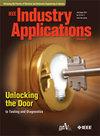基于 DDPG 的可持续路径跟踪,用于城市外场景中的互联自动驾驶电动汽车
IF 4.2
2区 工程技术
Q2 ENGINEERING, ELECTRICAL & ELECTRONIC
引用次数: 0
摘要
本文探讨了在智能合作互联自动驾驶(CCAM)环境中行驶的互联自动驾驶电动汽车(CAEV)的路径跟踪控制问题,在这种环境中,智能基础设施会建议要实现的参考行为。为了解决这个问题,我们提出了一种新颖的以能量为导向的深度确定性策略梯度(DDPG)控制策略,它能够保证对建议路径的最佳跟踪,同时最大限度地降低 CAEV 的能耗。为此,在 DDPG 代理的训练过程中嵌入了动力自主性、电池充电状态(SOC)、整体动力传动系统模型(包括电机方程、逆变器动力学和电池组模型),从而让 CAEV 按照最佳可持续驾驶策略行驶。该平台结合了 Matlab & Simulink 和 Python 环境,允许虚拟真实驾驶场景。具体而言,训练过程证实了 DDPG 代理学习安全生态驾驶政策的能力,而针对意大利那不勒斯的现实城市外场景进行的数值验证则揭示了基于 DDPG 的生态驾驶控制器在存在外部干扰的情况下解决所评估的 CCAM 控制问题的能力。最后,针对不同的 CAEV 模型和驾驶路径场景,对确保生态路径跟踪控制问题的拟议策略进行了鲁棒性分析,并与基于模型的控制进行了比较分析,以更好地突出拟议的深度强化学习(DRL)控制的优点/优势。本文章由计算机程序翻译,如有差异,请以英文原文为准。
Sustainable DDPG-Based Path Tracking for Connected Autonomous Electric Vehicles in Extra-Urban Scenarios
This paper addresses the path-tracking control problem for Connected Autonomous Electric Vehicles (CAEVs) moving in a smart Cooperative Connected Automated Mobility (CCAM) environment, where a smart infrastructure suggests the reference behaviour to achieve. To solve this problem, a novel energy-oriented Deep Deterministic Policy Gradient (DDPG) control strategy, able to guarantee the optimal tracking of the suggested path while minimizing the CAEVs energy consumption, is proposed. To this aim, the power autonomy, the battery state of charge (SOC), the overall power train model -comprehensive of the electric motor equations, inverter dynamics and the battery pack model- is embedded within the training process of the DDPG agent, hence letting the CAEV to travel according to the best sustainable driving policy. The training procedure and the validation phase of the proposed control method is performed via an own-made advanced simulation platform which, combining
Matlab & Simulink
with
Python
environment, allows the virtualization of real driving scenarios. Specifically, the training process confirms the capability of DDPG agent in learning the safe eco-driving policy, while, the numerical validation, tailored for the realistic extra-urban scenario located in Naples, Italy, discloses the capability of the DDPG-based eco-driving controller in solving the appraised CCAM control problem despite presence of external disturbances. Finally, a robustness analysis of the proposed strategy in ensuring the ecological path tracking control problem for different CAEV models and driving path scenarios, along with a comparison analysis with respect model-based controls, is provided to better highlights the benefits/advantages of the proposed Deep Reinforcement Learning (DRL) control.
求助全文
通过发布文献求助,成功后即可免费获取论文全文。
去求助
来源期刊

IEEE Transactions on Industry Applications
工程技术-工程:电子与电气
CiteScore
9.90
自引率
9.10%
发文量
747
审稿时长
3.3 months
期刊介绍:
The scope of the IEEE Transactions on Industry Applications includes all scope items of the IEEE Industry Applications Society, that is, the advancement of the theory and practice of electrical and electronic engineering in the development, design, manufacture, and application of electrical systems, apparatus, devices, and controls to the processes and equipment of industry and commerce; the promotion of safe, reliable, and economic installations; industry leadership in energy conservation and environmental, health, and safety issues; the creation of voluntary engineering standards and recommended practices; and the professional development of its membership.
 求助内容:
求助内容: 应助结果提醒方式:
应助结果提醒方式:


